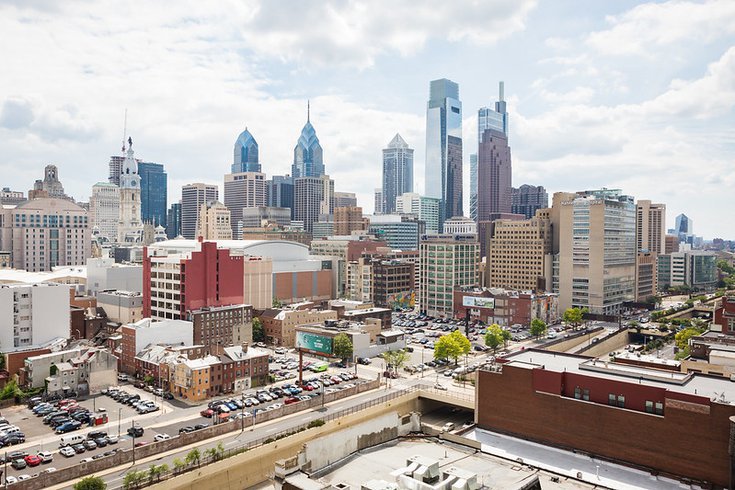
November 16, 2020
 Thom Carroll/for PhillyVoice
Thom Carroll/for PhillyVoice
Philadelphia's new COVID-19 restrictions aim to contain a surge in new cases as the city enters the winter months and awaits the availability of a vaccine.
Philadelphia officials announced significant new restrictions Monday to contain the city's rapidly surging coronavirus epidemic, which has seen a 700% rise in COVID-19 cases over the last two months.
Health Commissioner Dr. Thomas Farley said the new restrictions, outlined as follows, will take effect Friday and remain in place through the end of the year:
• All indoor gatherings involving people from more than one household — both public and private — will be prohibited. While the ban on private gatherings cannot be enforced, the restriction is intended as a strong message.
• Outdoor gatherings and events will be limited based on capacity, with no food or beverages allowed. Masks are required at all times. Fans will no longer be able to attend Philadelphia Eagles games at Lincoln Financial Field. Gatherings are limited to 10% of maximum capacity of the space, or 10 people per 1,000 sq. ft. for venues with an undefined maximum capacity. No gathering can exceed 2,000 people.
• Indoor dining at restaurants is again prohibited. Outdoor dining will be limited to households only, with no more than four seats to a table.
• Gyms, museums and libraries will be closed again. Other businesses that must close include movie theaters, performance spaces, bowling alleys, arcades, casinos and game spaces. Indoor exercise classes are not permitted.
• People must work from home unless it's not possible to do so.
• Youth, community and school sports must all be shut down.
• At retail stores, capacity will be limited to five people per 1,000 square feet, including customers and staff. Barbershops, beauty salons and other personal services will remain open by appointment only, withs masks required by customers and staff at all times.
• Religious institutions will be limited to 5% capacity, with virtual services strongly encouraged.
• Colleges and high schools must conduct virtual learning only. Elementary and middle schools will be permitted to have in-person instruction, depending on the district and school guidelines. College sports may continue only if their plans are specifically approved by the city health department.
• Parks, trails, playgrounds and athletic fields will remain open for individual use only. Group sports will not be permitted.
The new restrictions are the most significant intervention taken by the city since the initial lockdown period in March and April.
The restrictions were determined after several weeks of meetings to analyze evidence on the spread of COVID-19, review models of transmission and assess projections for the city's hospitals, Mayor Jim Kenney said.
Farley described a grim picture of what could happen in Philadelphia if the restrictions were not imposed.
COVID-19 hospitalizations have doubled in Philadelphia in the last 11 days, reaching about 500 patients as of Monday. The city is on track to exceed the peak of about 1,000 patients seen during the first wave in April.
It's possible Philadelphia's hospital capacity could be surpassed by the end of the year, a scenario that could lead to 700 to 1,400 additional deaths, Farley said.
At the rate cases are growing, the city would reach as many as 3,000 new cases per day by the end of the year – if restrictions were not imposed. A record of more than 1,100 new cases were reported last Friday. The three-day total reported Monday was 2,564 new cases.
To date, Philadelphia has reported 1,917 COVID-19 deaths and 54,607 cases of the virus.
The trend in rising cases can't be explained by increased testing alone.
Last week, Philadelphia averaged 657 cases per day, a record for the city, and had a test positivity rate of 13.4%. Farley said the data from last week is still incomplete. Both of those numbers likely will end up higher.
Much of the spread has been driven by private social gatherings between households. Though it will be impossible to enforce behavior at that level, the health commissioner said that there's evidence restrictions have an effect.
"I am hopeful that people will follow that," Farley said. "We know it won't be 100%, but I think a lot of people did in the spring."
Details about the city's revised guidelines and restrictions will be posted in full on Tuesday. A list of businesses not impacted by the latest changes can be found here.
Kenney acknowledged the hardships that will result from the city's new restrictions, adding that Philadelphia will continue to utilize CARES Act and other funding sources to provide as much assistance to residents and business owners as possible.